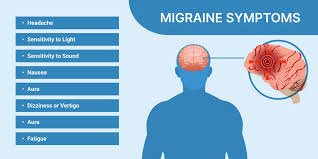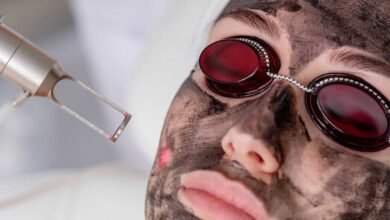
Migraines are more than just headaches they are debilitating episodes that can disrupt daily life, productivity, and overall well-being. For those who suffer from migraines, finding effective prevention strategies is crucial. One often overlooked yet highly impactful approach is improving sleep hygiene. But how exactly can sleep hygiene impact migraine prevention? Let’s dive into the connection between sleep and migraines, explore the science behind it, and provide actionable tips to optimize your sleep habits for better migraine management.
Understanding the Link Between Sleep and Migraines
Sleep and migraines share a bidirectional relationship. Poor sleep can trigger Migraine Prevention, and migraines can, in turn, disrupt sleep. This vicious cycle makes it essential to address sleep hygiene as part of a comprehensive migraine prevention plan.
Research shows that Sleep Disturbances, such as insomnia, sleep apnea, or irregular sleep patterns, are common triggers for migraines. On the flip side, migraines can cause fatigue, making it harder to fall asleep or stay asleep. By improving sleep hygiene, you can break this cycle and reduce the frequency and severity of migraines.
The Science Behind Sleep Hygiene and Migraine Prevention
Sleep hygiene refers to the practices and habits that promote consistent, uninterrupted, and restorative sleep. Good sleep hygiene helps regulate the body’s internal clock, or circadian rhythm, which plays a critical role in overall health, including migraine prevention.
- Regulation of Neurotransmitters: Sleep influences the balance of neurotransmitters like serotonin and dopamine, which are involved in migraine pathophysiology. Poor sleep can disrupt this balance, increasing the likelihood of migraines.
- Reduction of Stress Hormones: Chronic sleep deprivation elevates cortisol levels, the body’s primary stress hormone. High cortisol levels can trigger migraines and exacerbate their intensity.
- Restoration of Brain Function: During deep sleep, the brain undergoes essential repair processes, including the removal of toxins and the consolidation of memories. Disrupted sleep can impair these functions, making the brain more susceptible to migraine triggers.
- Stabilization of the Hypothalamus: The hypothalamus, a brain region that regulates sleep and pain, is often implicated in migraines. Proper sleep hygiene helps stabilize hypothalamic function, reducing migraine frequency.
Key Sleep Hygiene Practices for Migraine Prevention
Improving sleep hygiene doesn’t require drastic changes. Small, consistent adjustments to your daily routine can yield significant benefits. Here are some evidence-based strategies to enhance sleep quality and prevent migraines:
1. Maintain a Consistent Sleep Schedule
Going to bed and waking up Migraine Prevention at the same time every day, even on weekends, helps regulate your circadian rhythm. Irregular sleep patterns can confuse your body’s internal clock, increasing the risk of migraines.
- Tip: Set a bedtime alarm to remind yourself to wind down.
2. Create a Sleep-Friendly Environment
Your bedroom should be a sleep sanctuary. Optimize your sleep environment by controlling light, noise, and temperature.
- Tip: Use blackout curtains, earplugs, or a white noise machine to minimize disruptions.
3. Limit Screen Time Before Bed
Blue light emitted by phones, tablets, and computers can suppress melatonin production, making it harder to fall asleep.
- Tip: Implement a “digital curfew” at least one hour before bedtime.
4. Avoid Caffeine and Alcohol Close to Bedtime
Both caffeine and alcohol can interfere with sleep quality. Caffeine is a stimulant that can keep you awake, while alcohol can disrupt your sleep cycle.
- Tip: Avoid caffeine after 2 PM and limit alcohol consumption in the evening.
5. Establish a Relaxing Bedtime Routine
A calming pre-sleep routine signals to your body that it’s time to wind down. Activities like reading, taking a warm bath, or practicing mindfulness can help.
- Tip: Incorporate relaxation techniques such as deep breathing or gentle stretching.
6. Exercise Regularly, but Not Too Late
Regular physical activity promotes better sleep, but exercising too close to bedtime can have the opposite effect.
- Tip: Aim to finish vigorous workouts at least three hours before bed.
7. Watch Your Diet
Certain foods and eating habits can impact sleep quality and migraine risk. Heavy meals, spicy foods, or sugary snacks before bed can disrupt sleep.
- Tip: Opt for a light snack if you’re hungry before bed, such as a banana or a handful of almonds.
8. Manage Stress and Anxiety
Stress is a common migraine trigger and can also interfere with sleep. Incorporating stress management techniques into your daily routine can improve both sleep and migraine outcomes.
- Tip: Practice mindfulness meditation or journaling to clear your mind before bed.
9. Address Underlying Sleep Disorders
Conditions like sleep apnea, restless leg syndrome, or insomnia can severely impact sleep quality and trigger migraines. If you suspect a sleep disorder, consult a healthcare professional.
- Tip: Keep a sleep diary to track patterns and share them with your doctor.
10. Be Mindful of Napping
While short naps can be refreshing, long or irregular naps can interfere with nighttime sleep.
- Tip: Limit naps to 20-30 minutes and avoid napping late in the day.
The Role of Sleep Tracking in Migraine Prevention
Tracking your sleep patterns can provide valuable insights into how your sleep habits affect your Migraine Prevention. Wearable devices like smartwatches or sleep-tracking apps can monitor sleep duration, quality, and stages. By analyzing this data, you can identify patterns and make informed adjustments to your sleep hygiene routine.
- Tip: Look for trends, such as migraines occurring after nights of poor sleep or specific sleep disturbances.
Additional Lifestyle Factors to Consider
While sleep hygiene is a critical component of migraine prevention, it’s essential to adopt a holistic approach. Other lifestyle factors that can influence both sleep and migraines include:
- Hydration: Dehydration is a common migraine trigger. Ensure you’re drinking enough water throughout the day.
- Light Exposure: Natural light during the day helps regulate your circadian rhythm while minimizing artificial light at night supports melatonin production.
- Medication Management: Some medications can interfere with sleep or trigger migraines. Discuss any concerns with your healthcare provider.
Real-Life Success Stories
Many individuals have successfully reduced their migraine frequency by prioritizing sleep hygiene. For example, Sarah, a 34-year-old teacher, struggled with chronic migraines for years. After implementing a consistent sleep schedule, creating a relaxing bedtime routine, and addressing her caffeine intake, she noticed a significant improvement in both her sleep quality and migraine frequency.
When to Seek Professional Help
If you’ve tried improving your sleep hygiene and are still experiencing frequent Migraine Prevention, it may be time to consult a healthcare professional. A sleep specialist or neurologist can help identify underlying issues and develop a personalized treatment plan.
Conclusion
Sleep hygiene plays a pivotal role in migraine prevention. By adopting healthy sleep habits, you can regulate your circadian rhythm, reduce stress, and support overall brain health—all of which contribute to fewer and less severe migraines. Remember, consistency is key. Small, sustainable changes to your sleep routine can lead to significant improvements in your quality of life.



